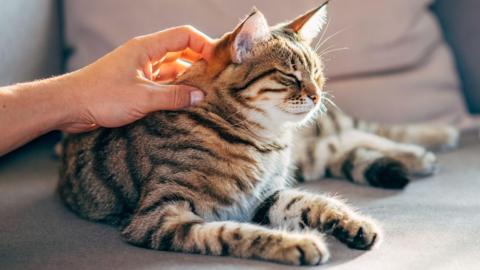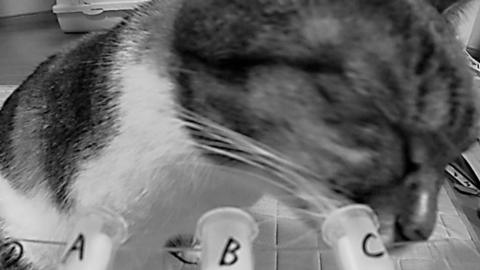Previous studies of human recognition by cats have shown they are able to distinguish between voices, interpret someone's gaze to find food, and change their behaviour according to a person's emotional state that is recognised via their odour.
In the study published on Wednesday, researchers presented 30 cats with plastic tubes containing either a swab containing the odour of their owner, a swab containing the odour of a person of the same sex as their owner who they had never met, or a clean swab.
The swabs containing odours had been rubbed under the armpit, behind the ear, and between the toes of the owner or stranger.
Cats spent significantly more time sniffing the odours of unknown people compared to those of their owner or the empty tube, suggesting they can discriminate between the smells of familiar and unfamiliar people, the researchers said.
The idea of sniffing an unknown stimulus for longer has been shown before in cats - weaned kittens sniff unknown female cats for longer compared to their mothers.
However, the researchers cautioned that it cannot be concluded the cats can identify specific people such as their owner.
"The odour stimuli used in this study were only those of known and unknown persons," said one of the study's authors, Hidehiko Uchiyama.
"Behavioural experiments in which cats are presented with multiple known-person odour stimuli would be needed, and we would need to find specific behavioural patterns in cats that appear only in response to the owner's odour."

